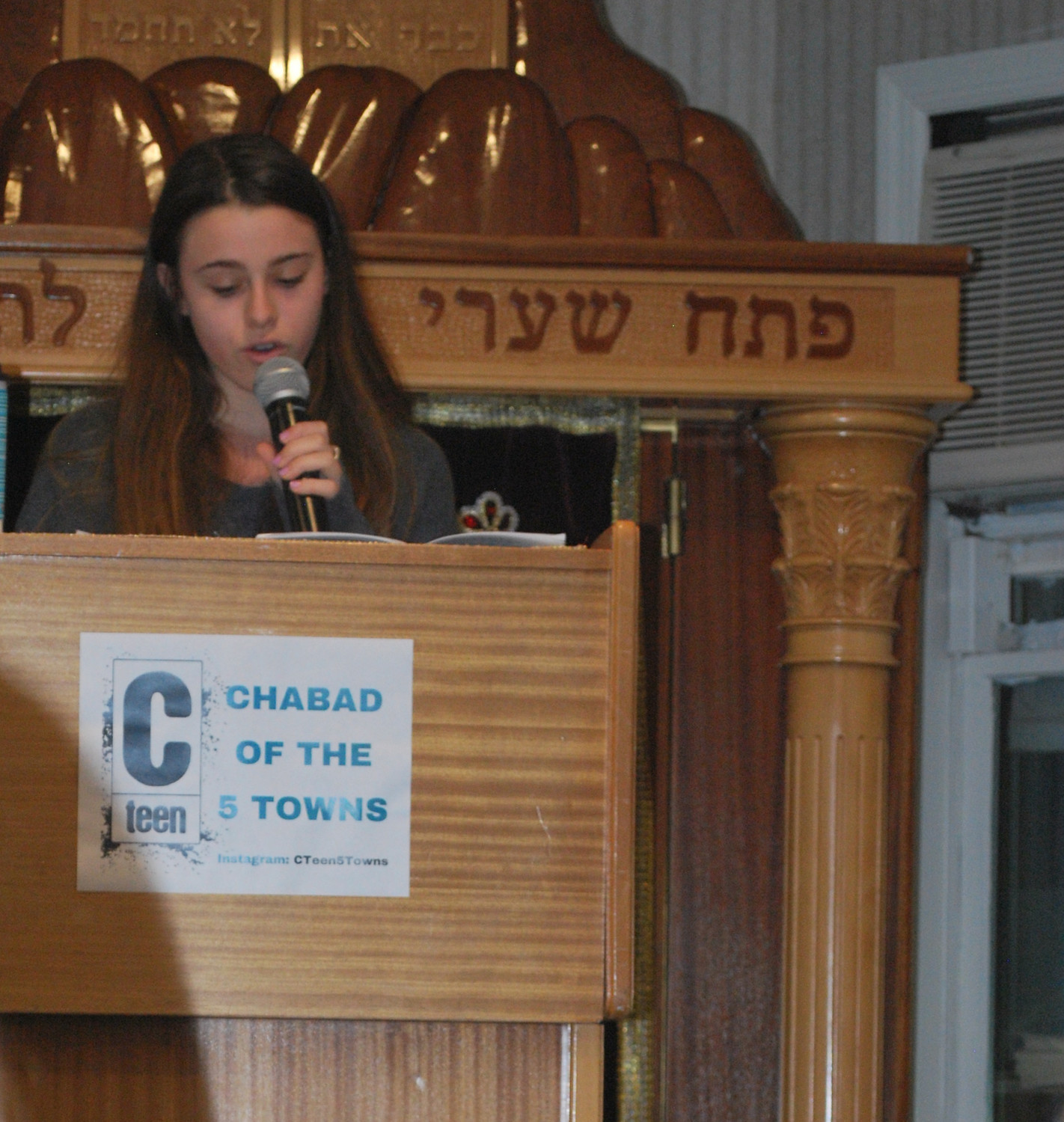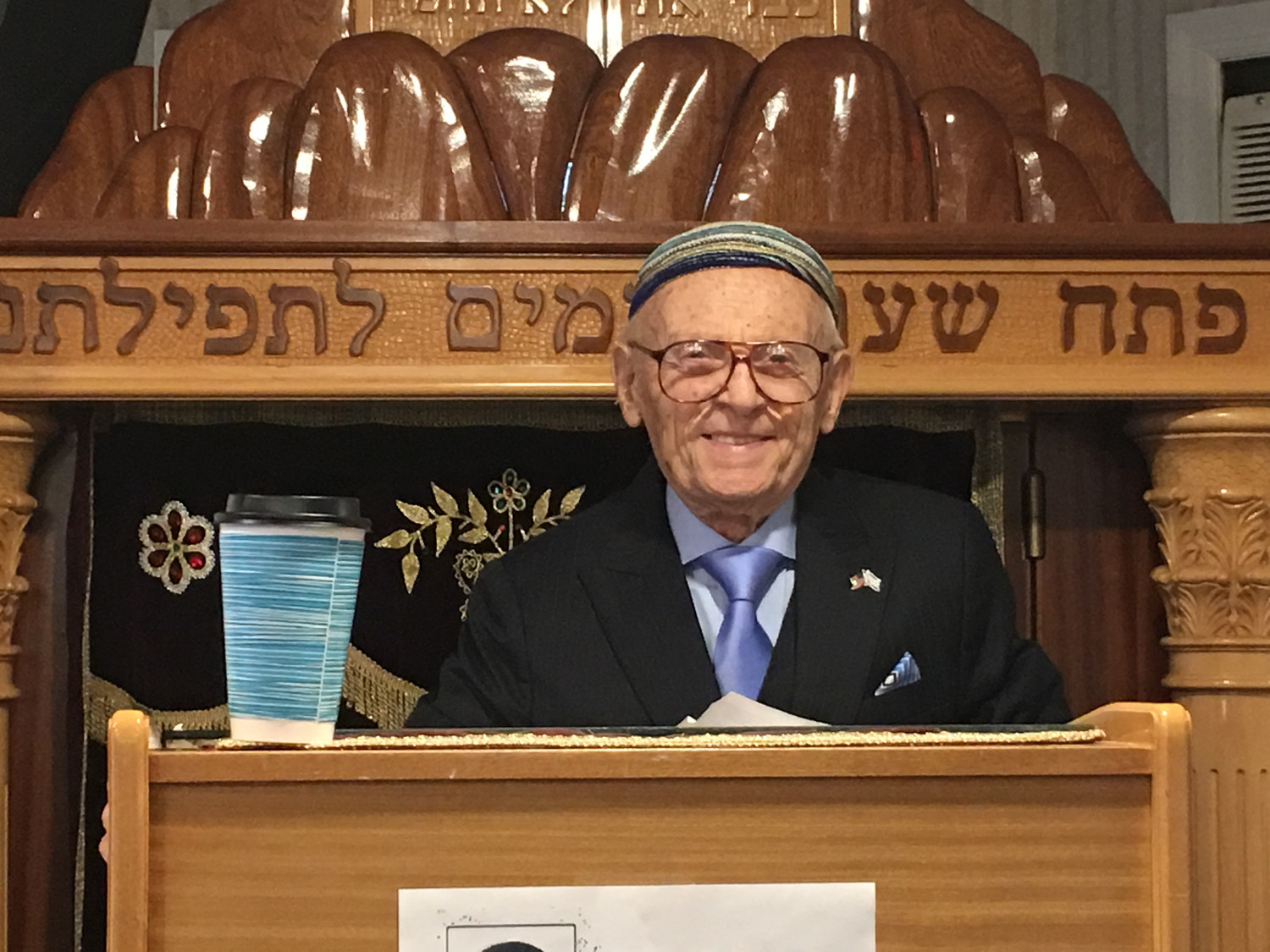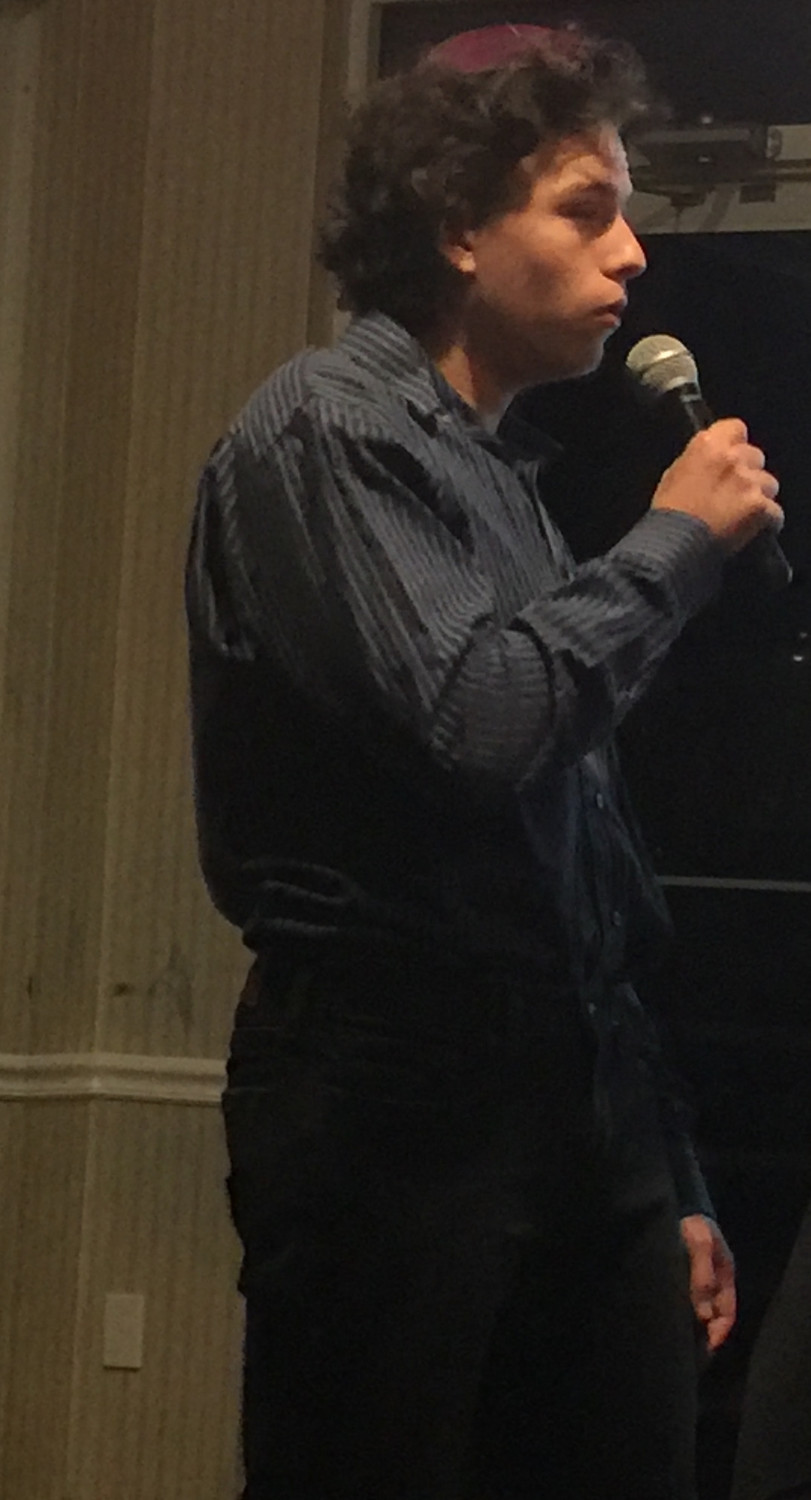CTeens from the Chabad of the Five Towns embrace Judaism
Holocaust survivor, Dr. Jacob Eisenbach, story impacts students
Dr. Jacob Eisenbach stands only 5 feet 4, but might as well have been a sequoia last Sunday to 29 Hewlett and Lawrence high school students who know of the Holocaust only through stories. In front of them was a living survivor.
Eisenbach, 95, only three years retired from his 44-year dental practice in Anaheim, Calif., spent more than 90 minutes recounting his family’s tragic story, answering questions and generally enthralling the teenagers, who are part of the Chabad of the Five Towns CTeen Network. The program offers them a place to learn, develop, bond with their peers and explore their Jewish faith.
Making his guest appearance at what the Chabad billed as an Evening of Remembrance, on April 29 — roughly halfway between Holocaust Remembrance Day, on April 12, and the 70th anniversary of the State of Israel, on May 14, Eisenbach had an eager audience, which also included a dozen or so adults and clearly empathized with his tale.
“In school we don’t talk much about Judaism,” said Hewlett High junior Evetta Poley, “so to be in a Jewish environment and be with other people like me is good.” A CTeen member since sixth grade, she recited a poem she wrote (though she admitted to having stage fright).
Standing on a raised platform behind a lectern, Eisenbach, accompanied by a slideshow, told his listeners that of the more than 100 members of his immediate and extended family in his native Lodz, Poland, only he and a now 96-year-old cousin still survive.
His mother, Sara, died before World War II began. His father, Max, his brothers, Sam and Henry, and their older sister, Fela, all died in the Holocaust or because they were Jewish. Eisenbach noted that before World War II, nearly 10 percent of the Polish population — 35.1 million — was Jewish. After the war, just 5,000 Jews remained.
“We had great Jewish culture, Jewish schools, newspapers, theater, stores, a very lively community,” the Villa Park resident and Chabad member said. “We had a very loving family. I remember getting a bright red tricycle. I was 3 years old.”
The life he knew ended in 1939, he recalled, as people learned that the German ship MS St. Louis, which carried 980 Jewish people, was denied entrance to the United States because the country’s leaders refused to accept what was happening in Germany. “He didn’t carry a swastika on his arm, but carried hate in his soul,” Eisenbach said of then Secretary of State Cordell Hull.
Meeting Eisenbach had a huge impact on Lawrence High senior and CTeen member Noa Benitah. “It meant a lot, because he connected to me and told me to believe in myself and said I was beautiful,” she said with a lump in her throat, tearing up.
Benitah said she had attended yeshiva the first two years of high school and being in public school the next succeeding two years, she needed to reconnect with Judaism. “I was in a Passover program in San Diego over the break and saw how those families were, and realized I missed it,” she said, noting that the Holocaust was terrible, but out of it sprang Israel.
Like many other Jews during the Holocaust, Eisenbach went into hiding. He and his brother Sam hid under straw in a padlocked room of a house. They were eventually found — “I knew I was going to die,” Eisenbach said. Though Sam could have gone free — the arrest warrant was only for Jacob — Sam said, “Where you go, I go.” That is the title of a book written by Karen McCartney, whose subtitle is, “The Astonishing Life of Dr. Jacob Eisenbach, Holocaust Survivor and Busy Dentist at 92 years old.”
The brothers were on a train headed to a concentration camp when the train was ordered to take its Jewish passengers to a munitions factory. Their lives were spared. Sam became a high-ranking officer in the Polish army after changing his name. Two years after the war ended, he was shot and killed by a Polish man who learned he was Jewish.
Eisenbach and his wife, Irene, met in one of the German weapons factories. He went on to earn a dental degree from the University of Frankfurt in 1950, and the couple came to the U.S. that year, under the Displaced Persons Act. They raised three sons and Irene died in 2013.
“Guard your precious minds from accepting ideas of hatred, because this is what it could to,” was his advice to the teens.
Hewlett High freshman Ethan Eisenberg, who ended the program by singing the Hebrew prayer “I Believe,” said he learned that there are positive and negative messages, and the positive can overcome the negative. “The establishment of Israel as a nation has implications for all Jews, he said, “and strengthens us.”

 47.0°,
Mostly Cloudy
47.0°,
Mostly Cloudy 









